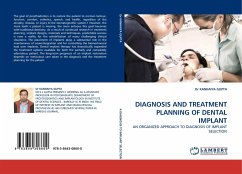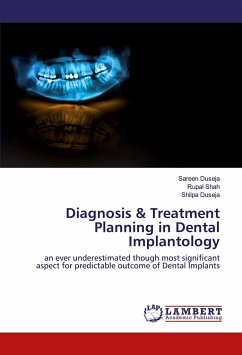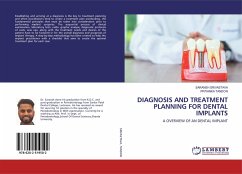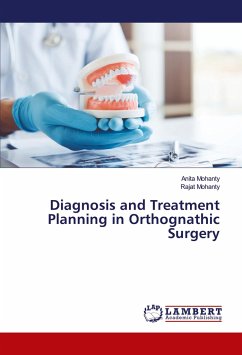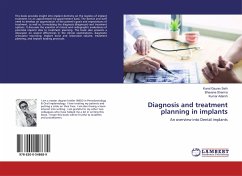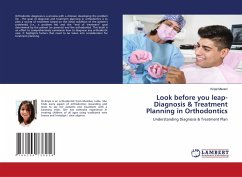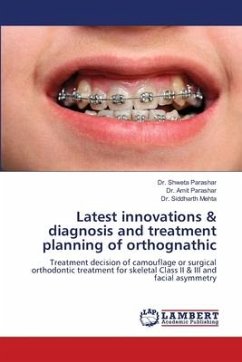The goal of prosthodontics is to restore the patient to normal contour, function, comfort, esthetics, speech, and health, regardless of the atrophy, disease, or injury of the stomatognathic system.1 However, the more teeth a patient is missing, the more arduous this goal becomes with traditional dentistry. As a result of continued research in treatment planning, implant designs, materials and techniques, predictable success is now a reality for the rehabilitation of many challenging clinical situations. The placement of implants plays a substantial role in the maintenance of osseointegration and for controlling the biomechanical load over implants. Dental implant therapy has dramatically expanded the treatment options available for both the partially and completely edentulous patient. The long-term prognosis of an implant restoration depends on meticulous care taken in the diagnosis and the treatment planning for the patient.
Bitte wählen Sie Ihr Anliegen aus.
Rechnungen
Retourenschein anfordern
Bestellstatus
Storno

